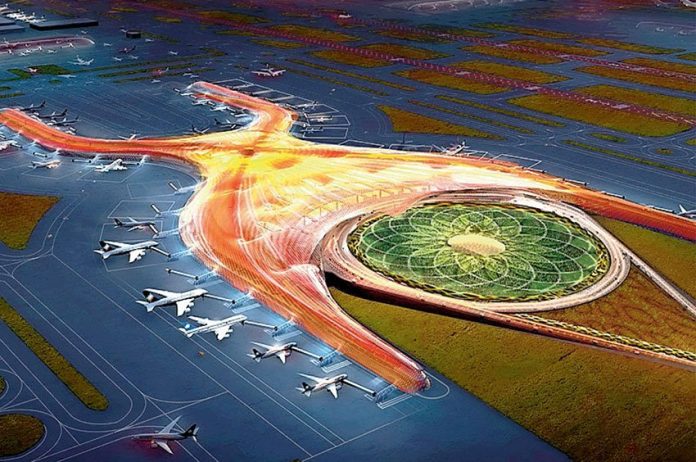Air travelers will avoid Mexico City due to the cancellation of the new airport project, the International Air Transport Association (IATA) has warned.
President López Obrador confirmed in late October that the US $13-billion project at Texcoco, México state, would be scrapped following a public consultation which found 70% support to drop it.
Instead, the Santa Lucía Air Force Base in México state will be converted for commercial use and the existing Mexico City airport will be upgraded.
That means that passengers could face the prospect of traveling 46 kilometers from one terminal to the other to catch a connecting flight.
Speaking yesterday at the IATA global media day in Geneva, Switzerland, the association’s vice-president in the Americas, Peter Cerdá, described that proposition as “extremely complicated.”
He also said that airlines could be dissuaded from operating in Mexico as a result of the cancellation decision.
“Mexico City is the second most important economy in the region, it’s a key point for transfers and connections, [the cancellation of the airport] will be a serious problem. A lot of passengers connect there but now they’ll go to Miami, Houston and Dallas and they’ll avoid Mexico. Hubs like Panama and the United States will take advantage of the limitations,” Cerdá said.
He added that it was still unclear how the existing Mexico City airport, the air force base and the Toluca airport would function simultaneously to serve air travelers to the capital.
“We need to . . . evaluate the efficiency of the project so that airlines can take decisions. It’s been said that [the Santa Lucía base] will be ready in three years, although to us that seems very ambitious . . .” Cerdá said.
After the cancellation of the airport project was announced by López Obrador on October 29, Cerdá said that the decision would cost the Mexican economy US $20 billion annually and 200,000 jobs.
The decision was also slammed by Mexico’s private sector, including Mexican Employers Federation (Coparmex) president Gustavo de Hoyos who called the cancellation “the biggest waste of public resources in the history of the country.”
The new government, which took office on December 1, has been left with the task of appeasing airport contractors and investors.
While López Obrador said last month that companies that have been building the new airport would not take legal action against his government, reaching a deal with investors has so far proven more difficult.
Bondholders yesterday rejected a buyback offer for the second time in as many weeks, contending that the government’s sweetening of the deal didn’t go far enough.
Cerdá said yesterday that the IATA would hold a summit with airline chiefs on February 28 to discuss the future of Mexican aviation. The economic impact of the airport cancellation on both Mexico and the wider region will be a key focus, he added.
“We’ll invite the different secretariats and officials so that the Mexican government has a prominent role at the meeting. We’re seriously concerned about the future of the Mexican aviation industry because of its lack of infrastructure, capacity and the saturation of air space . . .”
Source: El Economista (sp)
